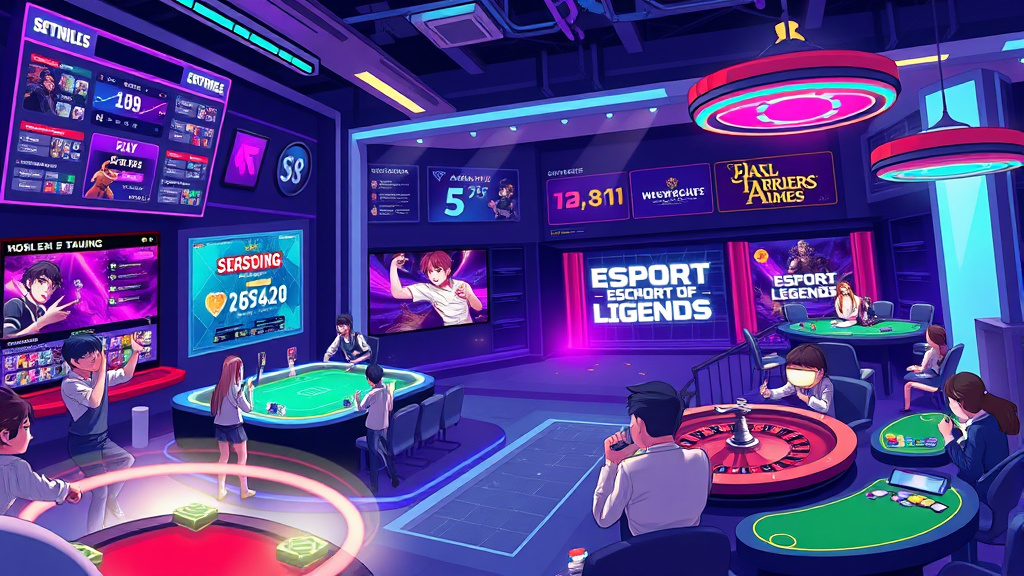In the dynamic ecosystem of manga consumption, manga raw websites have emerged as a significant, yet controversial, force. These platforms offer manga in its original Japanese form without official translations, making them especially appealing to fans seeking unfiltered content. As the manga community expands globally, understanding the landscape, legality, risks, and alternative options related to manga raw websites becomes vital for enthusiasts, creators, and industry stakeholders alike.
The Landscape of Manga Raw Websites: An Overview
Manga raw websites form a complex digital universe that operates largely outside traditional copyright frameworks. These platforms provide free access to manga chapters much earlier than official releases, often before official translations are available. They serve a niche audience eager to experience manga in its original language, which preserves nuances lost in translation. The rapid growth of these sites is partly driven by the desire for immediacy and authenticity, as well as the scarcity of official translated versions in certain markets.
However, this landscape is fragmented, with dozens of sites varying in quality, reliability, and scope. Some sites mirror popular titles such as One Piece or Attack on Titan, while others specialize in niche genres. The technological backbone often involves intricate networks of hosting services, mirrors, and proxy sites—each designed to evade takedowns. While these platforms cater to passionate fans, their legality remains murky, leading to ongoing debates about intellectual property rights, piracy, and cultural exchange.
 Hình minh họa: manga raw websites – read popular manga
Hình minh họa: manga raw websites – read popular mangaLegality and Ethical Considerations of Accessing Manga Raw Websites
Accessing manga raw websites raises significant legal and ethical questions that are essential to understand. These sites typically distribute copyrighted manga without authorization from publishers or creators, making them infringing on intellectual property rights. While many users justify their access by emphasizing the unavailability of official translations or the cultural importance of manga, the core issue revolves around respect for creators and the economic impact on the industry.
Ethically, supporting manga creators is crucial for the sustainability of the industry. The revenue generated from official channels funds new projects, supports manga artists, and sustains publishers. Using raw websites deprives these stakeholders of deserved income and discourages professional translation and distribution efforts. Legally, countries differ in their enforcement of copyright laws, but in many jurisdictions, downloading or distributing manga from unauthorized sites can lead to legal repercussions. Responsible manga consumption involves balancing appreciation for the medium with respect for its legal boundaries.

Popular Manga Raw Websites: A Comparative Analysis
Several manga raw websites dominate the unofficial scene, each with distinctive features and reputations. Sites like MangaDex, MangaRaw, and 9Anime offer vast libraries of raw manga, often updated multiple times daily. MangaDex, for example, despite offering some official translations, hosts a significant volume of raw manga uploaded by fan communities and is praised for its user-friendly interface and community moderation. In contrast, MangaRaw is more focused exclusively on raw content, appealing to purists who prefer original language versions.
Quality and speed of updates are key differentiators among these sites. Some manage to upload new chapters within hours of Japanese publication, while others lag behind due to hosting or moderation challenges. User experience varies; some platforms incorporate comment sections, rating systems, and customizable reading options, fostering engaged communities. Nevertheless, the reliability and permanence of these sites fluctuate, often influenced by legal crackdowns and host shutdowns, prompting users to seek alternatives or mirror sites.
Risks Associated with Using Manga Raw Websites: Malware and Security
While manga raw websites offer tempting free content, they come with substantial risks that users often underestimate. Many of these sites are riddled with malware, intrusive ads, or phishing schemes designed to infect devices or steal sensitive information. The abundance of aggressive advertisements can redirect browsers to malicious sites or trigger unwanted downloads, compromising personal data security. Moreover, some sites lack robust security measures, leaving users vulnerable to cyberattacks.
The risk isn't limited to malware—poorly optimized sites or those with questionable servers may cause device degradation, crashes, or data loss. The pervasive use of pop-up ads and the necessity to disable adblockers to access content further increases exposure to malicious content. Thus, the allure of instant manga access must be tempered with caution, and users should prioritize securing their devices and personal information during their browsing sessions.
Alternatives to Manga Raw Websites: Legal and Official Platforms
Given the legal and security issues surrounding manga raw websites, exploring legitimate alternatives is vital for sustainable manga enjoyment. Official platforms like VIZ, Shonen Jump, Crunchyroll Manga, and ComiXology offer authorized access to a vast catalog of manga titles. These platforms often provide high-quality translations, digital features like reading customization, and support for creators through their subscription and purchase models.
Additionally, many official platforms now offer free chapters or trial periods, making them accessible even on a budget. The benefits extend beyond legality and ethics—they ensure that fans receive accurate translations and support the industry’s growth. As the manga market increasingly embraces digital distribution, subscribing or purchasing manga through licensed channels is the most responsible and sustainable way to enjoy manga while supporting the creative community.
The Impact of Raw Websites on the Manga Industry: Sustainability and Piracy
Raw websites have a double-edged impact on the manga industry. On one hand, they serve as a cultural bridge, introducing manga to potential fans who might otherwise be unaware of the medium or unable to access official channels. On the other hand, they contribute significantly to piracy, which undermines the financial stability of publishers, translators, and artists.
Piracy through raw sites discourages investment in official localization and diminishes the industry’s revenue streams. Over time, this can lead to fewer new manga titles, reduced quality of official translations, and diminished opportunities for emerging artists. On a broader scale, it can hinder the global expansion of manga as a legitimate cultural product. Striking a balance between accessibility and fair compensation is vital for the long-term sustainability of the manga industry.
Navigating Manga Raw Websites: Tips for Responsible Use
For those who still choose to explore manga raw websites, responsible navigation is essential. First, users should employ security measures—use updated antivirus software, enable ad blockers, and avoid clicking on suspicious links or pop-ups. Second, it's advisable to limit browsing time on these platforms and refrain from downloading files that seem untrusted, minimizing exposure to malware.
Further, respecting community guidelines and engaging with fan forums can help users identify trustworthy and safer sources of manga content. Where possible, supporting creators indirectly by purchasing official manga or merchandise fosters a more balanced relationship with the industry. Ultimately, educating oneself about potential risks and making informed decisions can allow manga fans to enjoy their passion while minimizing harm.
The Future of Manga Distribution: Will Raw Websites Remain Relevant?
The landscape of manga distribution is continuously evolving, driven by technological advances and changing consumer behaviors. While raw websites currently thrive due to their immediacy and free access, their long-term relevance remains uncertain. Streaming platforms, digital manga subscription services, and official apps are increasingly gaining popularity, providing legal alternatives with premium features and community engagement.
The increasing enforcement of copyright laws and growing awareness about piracy’s impact may lead to stricter crackdowns on raw sites. However, the desire for instant, original-language manga suggests that unlicensed platforms will persist in some form. The future may see a hybrid model: official platforms offering more comprehensive, accessible, and user-friendly services, competing directly with raw sites’ appeal. Industry stakeholders must innovate to meet consumer demands for quick, affordable, and high-quality manga access.
Understanding the Appeal of Manga Raw Websites: A Cultural Perspective
The allure of manga raw websites is deeply rooted in cultural appreciation and the desire for authenticity. Fans value experiencing manga in its original language, capturing nuanced expressions, humor, and cultural references that sometimes get lost in translation. Raw sites permit quick access at the moment of release, fostering a sense of community and shared experience among fans eager to discuss chapters as they drop.
From a cultural perspective, raw websites exemplify a form of grassroots fandom—an act of cultural exchange driven not purely by commerce but by a shared passion. Nevertheless, this phenomenon also raises questions about cultural ownership and the ethics of consumption. Balancing respect for intellectual property and cultural appreciation remains an ongoing challenge in the global manga community.
Manga Raw Websites and Translation Communities: A Complex Relationship
Translation communities often emerge around raw manga websites, sometimes collaborating informally to translate and distribute manga unofficially. These groups are driven by a love of manga and a desire to share it, filling gaps left by official translations. However, this activity exists in a legal gray area, often infringing on copyright and supporting piracy.
The relationship is complex because many translators are passionate individuals who wish to promote manga culture but may not fully consider the industry’s needs. Conversely, publishers and creators argue that such activities undermine their rights and revenues. As the manga industry modernizes, many translators participate in official translation projects, showing a pathway toward more ethical and sustainable community involvement. Encouraging collaboration with official channels can preserve the cultural exchange element while respecting legal boundaries.
Conclusion
Navigating the world of manga raw websites involves balancing passionate fandom with ethical, legal, and security considerations. These platforms offer immediate access to manga in its original form, fueling fan engagement and cultural exchange. However, they also pose significant risks, including cybersecurity threats and significant impacts on the manga industry’s sustainability. The rise of official, legal platforms provides compelling alternatives that support creators and uphold industry standards—ensuring manga’s growth for future generations. As the industry evolves, fostering responsible consumption habits, advocating for copyright respect, and supporting innovative digital distribution models will be crucial for maintaining a vibrant, ethical manga ecosystem that respects both fans’ desires and creators’ rights.





